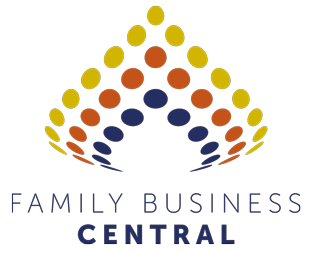
Succession of Leadership: How being ‘Your Best Generation’ is key for family business succession
In the final of our series of three blogs on succession within a family business, I want to look at succession of leadership. As we said in the previous blogs, succession is in three parts: ownership, directorship and leadership. They are obviously linked, but may happen in different ways and at different times.
The key message around succession in any of its parts is to “Start Early”. Start talking about and planning this early. Doing this helps put expectations in place early on, allowing both the older generation to plan and think about what they want to do and the next generation to think about and start preparing if they want to be involved in the business later.
In addition to this, having a few bedrock expectations in place, like ensuring succession is based on merit and the next generation needing to demonstrate they can lead the business is extremely helpful for everyone. This allows family members to think about what they can realistically expect, as well as what opportunities and responsibilities there are. If succession is openly discussed in the family — usually when the family is developing their family charter, then everyone has had a part in the discussions and final decisions made about it.
We have recently been working with families where the youngest member of the next generation is in their mid-teens — 15 or 16. This is great! While they have no idea about whether they want to come into the business or not, they feel involved and the ground rules/expectations and opportunities are clear and accepted by all the family.
Honesty, Transparency and Fairness
The key things that all family businesses are trying to manage are honest conversations, transparency and fairness. With these in place trust grows across the family. A family needs to be able to have honest and frank discussions that may include the skills or knowledge of members of the family. There also needs to be a level of transparency — private discussions behind closed doors rarely work and often set up the family for conflict because some members were not involved or did not buy into decisions. Finally, managing fairness across members of the Next Generation — I have learned not only professionally but also in my own family just how much family members pay attention to whether something is fair or not. Do not underestimate how much conflict a sense unfairness can create in a family business.
We often describe and summarise our work as “preventing future family conflict”. This means acting proactively, rather than reactively, to avoid conflict, rather than trying to solve it. By getting families to discuss and make decisions on key areas of succession early, we prevent huge amounts of potential future conflict.
By clarifying the expectations, opportunities and responsibilities for everyone, the chances are far better that there will not be family-destroying conflict when succession comes. The other key element here, is that when you do have these conversations—write them down and circulate them. Our memories are enormously inaccurate and just become yet another source of conflict over who has the ‘right’ memory of a conversation held 10 years previously.
Why Merit is so Important
When we look at the issue of succession of leadership, the key factor we focus on is merit. Whoever is going to take on the top job or even senior roles within the business, they need to be there because they have the skills and knowledge to do the job well — NOT just because they are family or the oldest, or the boy, or anything else. This means that the days of the oldest son getting the gig are long gone.
We worked with a family who ran a very successful trucking business in rural New Zealand. The two sons worked with their father, one was a truck driver and the other was a diesel mechanic. As the business grew, the mother and father were keen to step back and let their kids start to take over the business. As we worked with them, we got to the point where they started to think through the qualifications of the next leader of the business. The mother and father, who started the business had worked very hard and been very successful. They had several very good long-term contracts but after 25 years the business was large, complex and a few competitors were breathing down their necks. Fuel and salary costs were of course rising and there were some very difficult negotiations coming up with some of their customers around rates.
After a long series of discussions, with mum, dad, the two sons and the daughter, it became clear that the best qualified person to run the business was in fact the daughter. She had a very good degree in commerce, had worked away from the family for at least 10 years and now wanted to move back closer to home. Her brothers, while great truck drivers and mechanics, were not businesspeople. The daughter was smart and commercially savvy and was well placed to take the business forward.
The interesting thing about this discussion was that it was a genuine discussion. We started off by asking the family to list off the necessary skills that any future leader of the business was going to need. What the business challenges were going to be going forward etc. By looking at the situation this way, the family could easily see both what skills were going to be needed and it became clear that the skills of driving trucks or repairing diesel engines was not high on the list. Again, by taking the family through this process openly and frankly they all concluded that it really was the daughter who should take over. The boys were frankly relieved not be having to deal with all that ‘business bullsh*t’ as they called it and, of course, they were going to be owners and probably directors of the business going forward.
Succession of Leadership — Be Your Best Generation
So how do we do this in practice? When we are working on a succession plan with a family — usually as part of a family charter — we get the family to discuss a couple of things.
The first thing to do is for the senior or current generation to think through, when it comes to succession of leadership is, what their plan is. What do they want to do? How involved in the business do they want to be? How do they mentor or coach the potential successors to start taking over their role?
Remember: succession is a process not an event—it may go on for many years. Even when a member of the next generation is in a senior role, the current generation could be heavily involved in the business. In essence the next generation need to have space to grow into a role and the current generation need to not feel like they are being turfed out! So, succession starts with the current generation working out what they want to do, how they can provide ‘space’ for the next generation coming through as well as the current generation doing what they want to do — after all — they’ve earned it. This can range from hitching up the caravan to the back of the car and taking off for 8 months a year through to being closely involved with the next generation leaders, through to focusing on special projects that they love doing and are invariably the best at doing.
So, as well as setting up a Senior Generation 10 Year Plan we need to have a Next Generation Development Plan.
We call this “Being Your Best Generation” and have a one-hour video on it if you’d like more detail.
Then we get the family to go through what the agreed process for anyone in the family wanting to put their hand up for a senior position. This may include presenting to the Family Council, talking to other members of the family and obviously being able to demonstrate a level of skill and knowledge for the role.
The Next Generation Development Plan describes the process that anyone in the next generation needs to go through if they want to take on a senior role in the business. This can include formal training, experience, coaching, and mentoring. We often split it into different categories. The first is for all members of the Next Generation so they can all get their head around the intricacies of the business and what is involved. There is no expectation that they will take on a role, it is more focused on a general education for everyone in the next generation, so they have a good sense of what is involved in the business. The second category is for those individuals in the Next Generation who want to actively go for a senior role in the business. This plan is far more specific for the particular role and much more involved. It can include formal qualifications all the way through to winning over the respect of key stakeholders. We know of one member of a family who had to work for 8 years, starting off sweeping floors in the furthest office before he finally got the top job.
There is also another possibility that seems to be peculiar to family businesses — that is that two of sometimes three members of the family jointly run the business. There are several well-known and successful family businesses that do this. It’s not easy and takes a lot of honest conversations between family members to get it to work, but it can be very successful.
Finally, there is always the possibility that no one in the next generation is either qualified or wanting to take over a leadership role. This is not necessarily a problem. Finding a suitably qualified non-family leader of the business does take time and there is a unique bunch of skills required, but there are many examples where this has been very successful.
To summarise, the key thing is having the conversations within the family. Being able to be honest with each other and be able to raise the important issues and discuss them. This often takes time, and in many cases, should take time to allow all the family to think through what they want and what the best way to achieve it is. Often having an independent person in the room to help manage and structure these conversations makes them a lot easier and successful.
If you have any more questions regarding succession of leadership or any other aspects of family business succession, please contact Philip on philip@familybusinesscentral.com.

